Family history as a public health intervention?
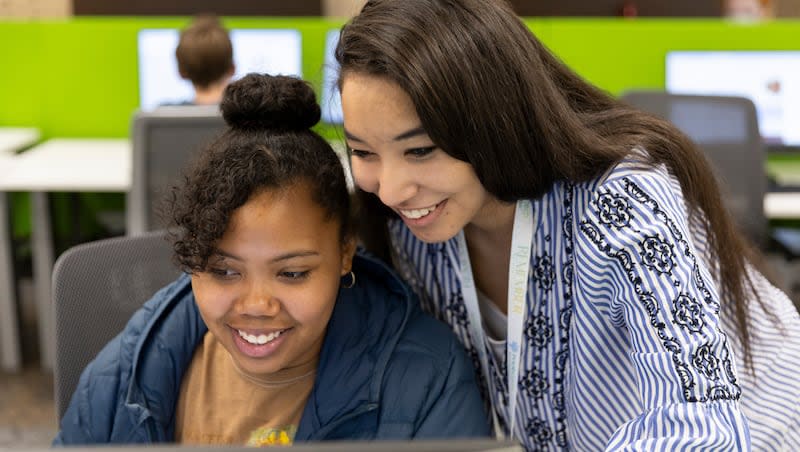
- Oops!Something went wrong.Please try again later.
- Oops!Something went wrong.Please try again later.
The world’s largest family history conference concluded this weekend in Salt Lake City. Despite rapid advances in genealogical technologies, some still perceive family history as interesting primarily to older folks with extra time and an affinity for family lore.
But America’s mental health crisis might change that.
Professor Jonathan Haidt’s highly anticipated book, “The Anxious Generation,” explores the puzzling deterioration in youth mental health over the last 15 years. Although there are various factors involved, Haidt focuses attention on the arrival of a “phone-based childhood” that ushers young people into an immersive network of digital community centered on social media relationships.
This emergence of the smart phone’s dominance (in the early 2010s) is highly correlated with the sharp downturn in youth mental health, as documented by San Diego State University scholar Jean Twenge over the last decade.
Influenced by these findings, no less than 35 states passed laws or resolutions about social media and youth in 2023, few more forceful than Utah, which has made headlines again this year with legislative initiatives looking to curb the influence of social media.
Amidst the widespread concern over the consequences of these pervasive social media networks — including spikes in loneliness and isolation — less attention has gone to alternative networks where people of all ages can find meaningful connection and healing relationships.
Professional genealogist Lindsay Fulton spoke at RootsTech about the “untapped potential” of family history, including its “incredible and quantifiable impact on young people.” With organizations now poised to offer family history education in classrooms and homes anywhere — including 670 videos available from past RootsTech conferences (and another 858 in Spanish or Portuguese) — experts at the conference pointed to four main emotional and relational benefits of family history:
1. An expanded sense of connection
The well-known “dinnertime study” from 2005 directed by Emory psychologists Robyn Fivush and Marshall Duke was one of the first to highlight the tangible benefits of family history for young people. “There seems to be something that’s particularly important about children knowing where they came from in a larger sense,” they observed.
The researchers described “family narratives about the shared past” as especially significant for children’s sense of being a “member of a unified family.”
“There’s an amazing feeling I get when I put in the effort to learn more about my ancestors,” 18-year-old Janae Coon said at her first RootsTech conference. “When I listen to stories about (my ancestors),” she said, “I feel connected to them.”
That’s been true for her adopted family’s ancestry, and it also makes Janae excited to research her biological family and “learn more about my roots as a Native Alaskan.”
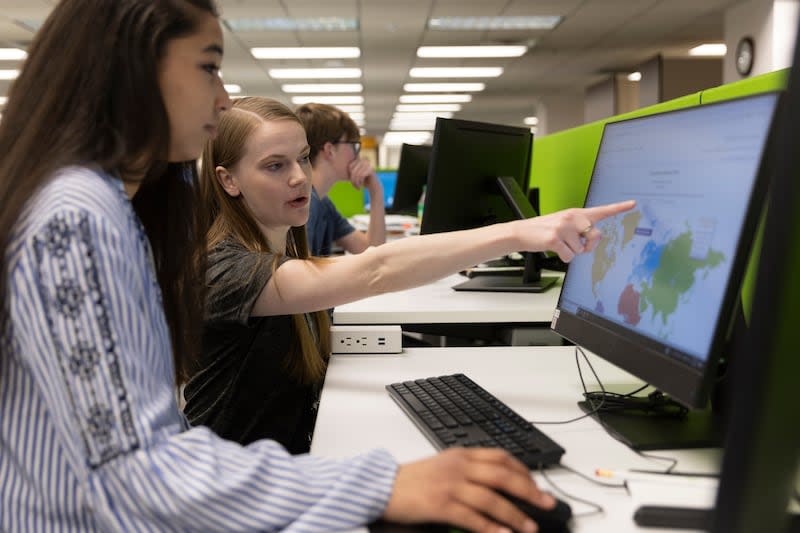
This kind of “increased love and appreciation for ancestors and living relatives” can help us “no longer feel alone,” said Elder Dale G. Renlund of the Quorum of the Twelve Apostles of The Church of Jesus Christ of Latter-day Saints.
To those unsure about having coherent family stories to share, Fivush is quick to remind families about “spontaneous, everyday conversations” that happen “every few minutes” at dinner about current activities (’Guess what happened today …') or memories that surface (’That reminds me when I was a little girl …'). All of this helps “weave our lives back together,” she said.
“You don’t think your adolescents want to talk about this,” Fivush says with a smile. “They roll their eyes, and say ‘come on.’” Yet after many years of research across hundreds of families, she points out that over 95% of young people surveyed have been happy to tell a story about their families.
“If anything, what we hear more is ‘we want to hear more stories.’ ... They’re hungry for them.”
2. An expanded sense of identity
In a 2010 study, “The power of family history in adolescent identity and well-being,” this same set of Emory researchers surveyed middle-class, mixed-race families with teenagers, discovering that young people who “knew more stories about their extended family showed higher levels of identity achievement.”
“Family stories provide a sense of identity through time, and help children understand who they are in the world,” they concluded.
Koen Bangerter has been looking into his family’s history for years, and can hardly contain his excitement to share ancestor stories with the other teens in the group as they walk around RootsTech together.
With everything else he could be focusing on as a high school freshman, I asked Koen why he keeps wanting to learn more about his ancestors. “It shows you what you are really a part of, and how significant it is,” he said.
Brigham Young University professor Brian Hill has explored ways to use family history to help families and youth who have lost family connections. Whereas most people “almost universally know where they are from and something about their family,” so many others don’t. With the help of DNA, Hill’s team was able to help abandoned youth in South Africa identify their tribes and families, many of whom would say, “I didn’t know who I was.” These new discoveries were often met with spontaneous singing and dancing.
“Knowing where we are from and about our family tells us who we are,” Hill said in a report by Rachel Sterzer Gibson. “Family history knowledge is a bedrock part of our identity.”
Hill, along with fellow researcher Clive Haydon, published a 2023 study of 250 students at seven U.S. universities, which again found that those with the highest family history knowledge also had the healthiest identity development.
“Family history knowledge is particularly good at keeping us grounded,” Hill said in a BYU press release.
“As we learn more about our own ancestors and feel connected to them, we will in turn feel better about ourselves,” researcher Kelly Summers told Church News, adding, “because they are a part of us.”
Dr. Jennifer Jacobs with Connect Our Kids, told the story at RootsTech of a young man in the foster system in Ohio named Daniel, who was grappling with his own sense of self due to his immediate family history: “If his parents were failures, well, he must be one too.”
Then Daniel began to explore his larger family tree, filled with lots of other people, including a great-grandfather who had been a well-loved, small town pastor and a great-grandmother who had been a nurse in World War II.
“Wait, what?” he said. “There are good people in my family?”
That discovery prompted him to get reconnected with other living relatives and become open to adoption. As Jacobs observed, Daniel now “stands straighter, and smiles more ... because he knows better who he is.”
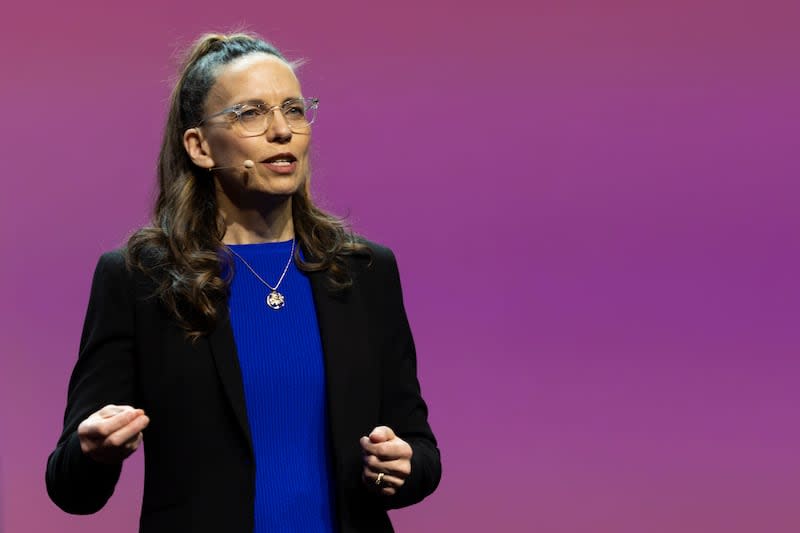
Rather than keeping historical details hidden, Jacobs said that struggling children “desperately need some information to make some sense of what has happened” — suggesting that many children’s futures “depend on connecting them with their people, their identity and their history.”
3. A deepened capacity for resilience
“Not all stories and not all storytelling are equal,” said professor Jody Koenig Kellas from the University of Nebraska-Lincoln at RootsTech, with past experiences shared in “positive, hopeful, resilient ways” especially impactful.
BYU Haydon said that “sharing family history is most likely to influence positive adolescent identity development when it promotes positive relationships, respects personal agency and invites personal reflection.”
The Emory researchers similarly observed that families who are able to “talk about emotionally complex and difficult events” in ways that are “more open, integrated, and coherent” instill valuable lessons about how to navigate future challenges. Among other things, these children can come away understanding that “negative events don’t define the family history.”
After the shattering death of her father by suicide, Camaron Perkins described a tangible impression: “Don’t let this one moment in time define your father. That’s not who he is. ... Find a way to define his life and celebrate it.”
As Sydney Walker reports in the Church News, Perkins felt inspired to begin adding memories to her father’s profile in the FamilySearch App. With each new picture and story, positive memories came flooding back, which helped her “preserve them in honor of him.”
“As I was doing this, all those feelings of pain and agony were leaving me, and they were being replaced by feelings of joy and wonderful memories and love for my father,” she said — calling the entire processing “healing.”
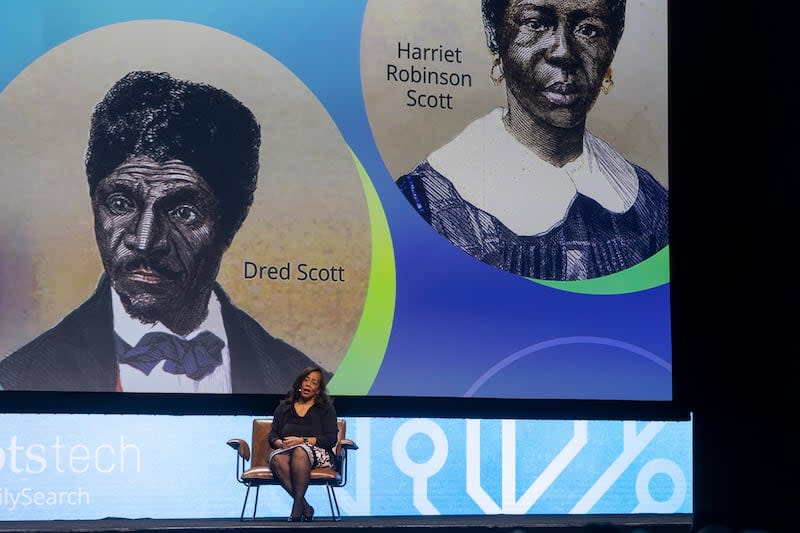
“Even when the stories are difficult, sometimes those are the most important stories to share,” Fivush says, “because those are the stories that build strength, that build resilience, that help us process deeply difficult things.”
“Certainly we want the joyous stories,” she said, “we want to share that joy. But we also want to share the tears.”
Christina Herzog-Garcia found new comfort and connection in family history following “many years of sadness and anger” after being unable to have children or adopt. “Just by knowing that my great-grandfather’s sister was married and was never able to have children just like me gave me a comfort knowing that someone in my family went through the exact same thing I am going through now,” she told Walker.
“It’s not just how to tell stories, but how to listen to stories,” said Kellas, adding, “We must learn how to listen to other people’s stories compassionately and empathetically.”
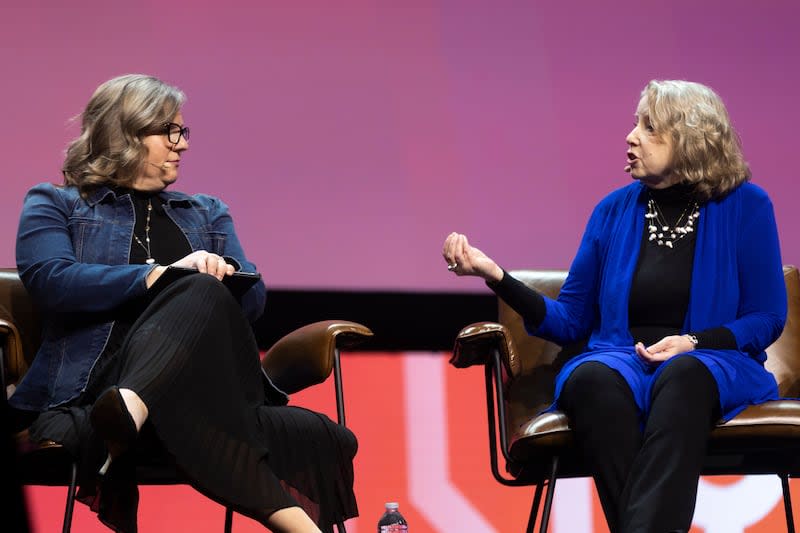
4. Expanded emotional well-being
In a 2022 study, Barry Lunt and several other BYU professors were surprised to find that even one three-month family history class had measurable effects in reducing anxiety by 20%, while boosting self-esteem and resilience.
“We’re not suggesting that this can solve clinical depression and all ills of life, but it can help,” Wood said. “The proof is in the pudding. ... Try it and see if you’re not happier at the end and if you don’t feel better.”
After experiencing depression and anxiety for years, Amelie Bleakley described making surprising progress in searching for ancestors.
“It was such a fantastic feeling to have a glimpse at the lives of people from the past, humbling, exciting. … I laughed, I cried,” she recalled in a Church News interview. “I was feeling alive, which wasn’t always the case when I was really low. … It helped me overcome that feeling I was useless and worthless.”
This impact can also be seen in families as a whole. As the Emory team observed, family narratives “often told again and again, define the shape of each family’s emotional life.”
Ken Kaufman described a time of great family turmoil where his business fell apart. Seeing a need to lift and reassure their children, he and his wife Angela called the family together each weekend for regular “Sunday scoops” as they sleuthed together on various aspects of family history (followed by a bowl of ice cream).
This has become a regular part of the family’s life, and closely tied with their worship in Latter-day Saint temples. The Kaufman children have been to RootsTech each of the last five years, with the oldest brother Daniel finding well over 5,000 family names, and teenager Emily checking 6,000 names for accuracy in online indexes last month alone. At the end of the interview, Emily pulled me aside to make sure she had a chance to share, “the blessings of family history are real. I’ve experienced them myself.”
Sydney Walker and Rachel Sterzer Gibson contributed to the reporting

